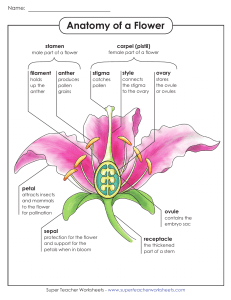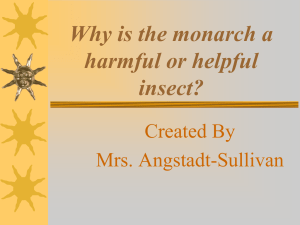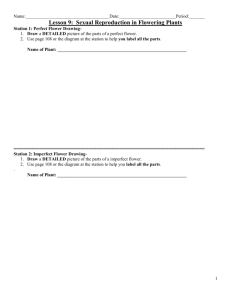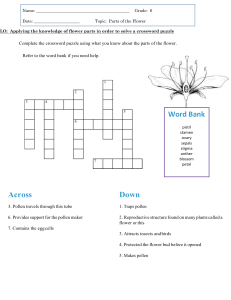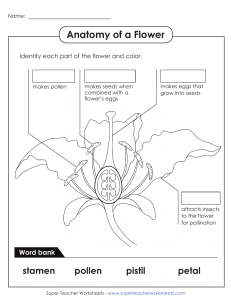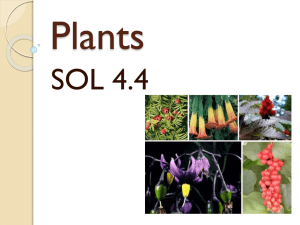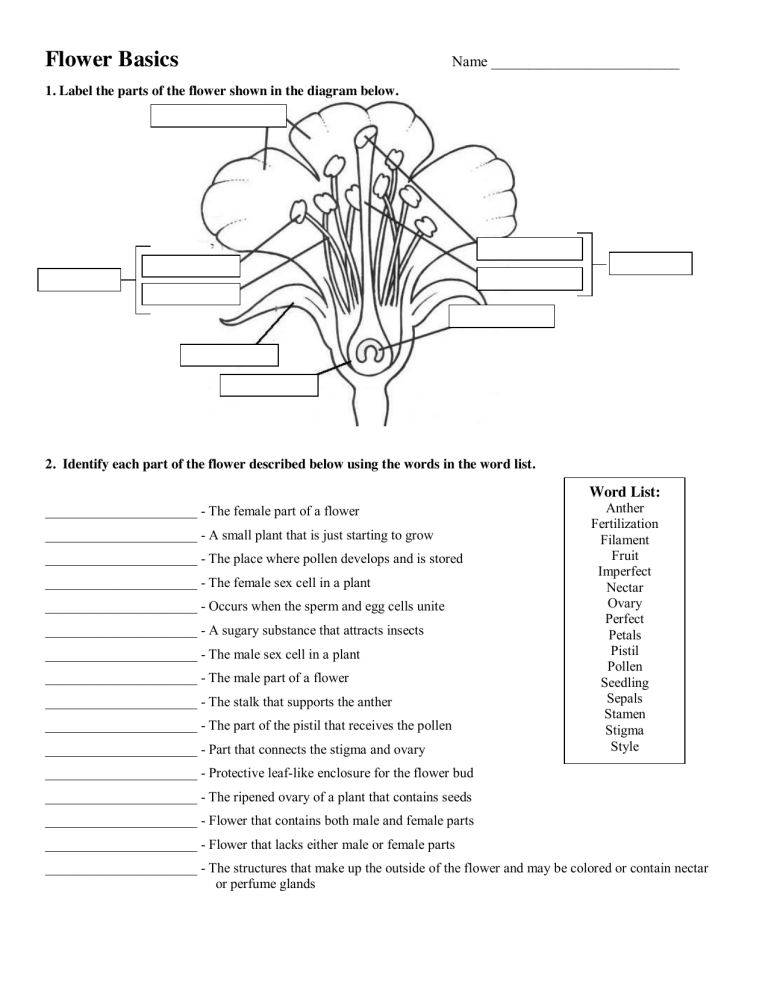
Flower Basics Name _________________________ 1. Label the parts of the flower shown in the diagram below. 2. Identify each part of the flower described below using the words in the word list. Word List: ______________________ - The female part of a flower ______________________ - A small plant that is just starting to grow ______________________ - The place where pollen develops and is stored ______________________ - The female sex cell in a plant ______________________ - Occurs when the sperm and egg cells unite ______________________ - A sugary substance that attracts insects ______________________ - The male sex cell in a plant ______________________ - The male part of a flower ______________________ - The stalk that supports the anther ______________________ - The part of the pistil that receives the pollen ______________________ - Part that connects the stigma and ovary Anther Fertilization Filament Fruit Imperfect Nectar Ovary Perfect Petals Pistil Pollen Seedling Sepals Stamen Stigma Style ______________________ - Protective leaf-like enclosure for the flower bud ______________________ - The ripened ovary of a plant that contains seeds ______________________ - Flower that contains both male and female parts ______________________ - Flower that lacks either male or female parts ______________________ - The structures that make up the outside of the flower and may be colored or contain nectar or perfume glands Image: http://www.smithlifescience.com/SciFlowerDiagramBlank.jpg T. Trimpe 2010 Worksheet developed for use with the "Our Flowering World" video from United Streaming. 3. What is the difference between self-pollination and cross-pollination? Challenge: Pollinators are important to the natural world as well as humans! Can you unscramble the names of these pollinators? __________ N A S T ___________ T U B T R E L I F E S __________ T S B A __________ L I E F S ___________ E B E S __________ E T E B E L S __________ T H O M S _______ ________ T U R E U B S G __________ D R B I S Did you know? Honey bees are the most common pollinators. What insect comes in second place? _____________________ T. Trimpe 2010 Worksheet developed for use with the "Our Flowering World" video from United Streaming.
